Alright, it wasn’t a gala, but a “mixer.” Last week, I attended the fall mixer held by Greater Greater Washington, probably the premier housing/transit/urbanism advocacy organization in the D.C. metro area. They do really great stuff, and if you’re in the area you should check them out. (And if you’re a writer in this space, you want to be in their pages. In July and just recently in September, I was!)
There were over 350 people there. The venue was Metrobar, a quirky outdoor bar in Northeast D.C. whose centerpiece is an old genuine railcar from the D.C. Metro system. The capacity of the place, according to a sign, was only 399.
As the guy who ran the church rummage sale I used to go to in college always said, if you keep coming in, the fire marshal will shut us down!
The Metro system’s new general manager and CEO, Randy Clarke, was there to give some remarks, and he presented a vintage Metro station sign marker to the bar’s owner, to hang somewhere on site. It was very cool.
These are people who support transit, density, etc. not because of ideology or politics, but because they’re proud of the places they live and the region they live, and they want it to thrive. And people are the key to that.
Here’s GGWash’s executive director, Chelsea Allinger:
It was fun to run into people I know in passing, or who I know only from social media. Every time I go to some event or just go out in general, I think, I should get out more. Not that I’m a hermit, but working remotely and being self-employed on the internet can be isolating.
It’s a lot of things—encouraging, relaxing, energizing, reassuring—to get away, just for a few hours, from the day-to-day grind that, in some form, I’ve been doing for over six years now: writing articles and headlines, selecting artwork, promoting content on social media, etc. All of these discrete tasks loom large, and when you’re sitting in front of a screen and most of your feedback is in the form of dashboards and Twitter comments, it can be hard to tell what it’s really all amounting to. If it’s really sticking, getting traction. Without casual and professional feedback—from peers, coworkers, acquaintances—you can lose sight of where you’re going, what the trajectory is. The numbers are very good—they really are—but there’s nothing like hearing it from real, flesh-and-blood people.
And I did. The third or fourth time someone I vaguely knew told me they read my newsletter, I said, “I never want to get tired of hearing that!” And I don’t think I ever will. I also chatted with a paying subscriber, who told me that she really valued my perspective on these issues; hyperlocal, conceptual, quirky. I always think it’s a good sign when someone describes my work to me the way I think about it.
I ran into an older fellow, a self-styled conservative urbanist, with whom I chatted for awhile. Some of his opinions certainly diverged from most of the rest of the crowd. But when he mentioned “National Airport,” I was a little incredulous. “A conservative who doesn’t call it Reagan Airport?” “I don’t believe in renaming things,” he said. “It’s the Redskins. And it’s National.”
He also loved trains, and he proffered that he couldn’t care less whether an apartment building went up on his block. “It’s not my property, it’s none of my business,” he said. I can get behind that.
Many of the people here at this mixer were professionally involved in planning or land use in some way. But many were not, or like me, they ended up here sort of by accident. So often these issues feel arcane and obscure. A typical zoning ordinance is about as intelligible to an ordinary person as a page of computer code. But just the way coding is the architecture of the programs we use, the land-use regime is the invisible architecture of our built environment. An energetic gathering of 350 passionate people (and a drink or two) helps make the theoretical real. It reminds me that all of this work has real consequences and real benefits for real people.
Towards the end of the night I chatted with a fellow in Montgomery County who had only gotten into this stuff in the last couple of years. He went from 0 to 60 (pardon the car metaphor) pretty fast: engaging on NextDoor, submitting public comments, going to hearings. He’s a liberal, but he doesn’t care about this stuff because he’s a liberal. He cares about it because it’s a real, pressing, practical problem. I’m not much of a public-meeting-attender, and I’ve never found activism to be my thing, but we need those folks. What I’m doing fits into what we’re all doing.
On my way home—taking Metro, of course—I took a photo of this recent apartment building just a stone’s throw away from the Metro station. It’s cool. It’s functional. Transit and land use are really almost one in the same, yet they frequently fail to work together.
And I wondered if the Beltway—the line around the map here by the edge of all the Metro lines—should itself have been some sort of transit line. (There are reasons why it wasn’t back then—I believe the question was actually studied—but today, with the suburbs much more filled in, it might make sense.)
I also ran into a puzzled visitor on the platform who needed a little help with the map, and then we chatted briefly about visiting the city. That’s the kind of thing transit does.
I want to end here by thanking the people at Greater Greater Washington for putting on a really stellar event. And I want to thank everyone who reads this newsletter and subscribes. We’re building something together.
Related Reading:
The Deleted Scenes Top 10 of 2021
Thank you for reading! Please consider upgrading to a paid subscription to help support this newsletter. You’ll get a weekly subscribers-only post, plus full access to the archive: over 400 posts and growing. And you’ll help ensure more material like this!




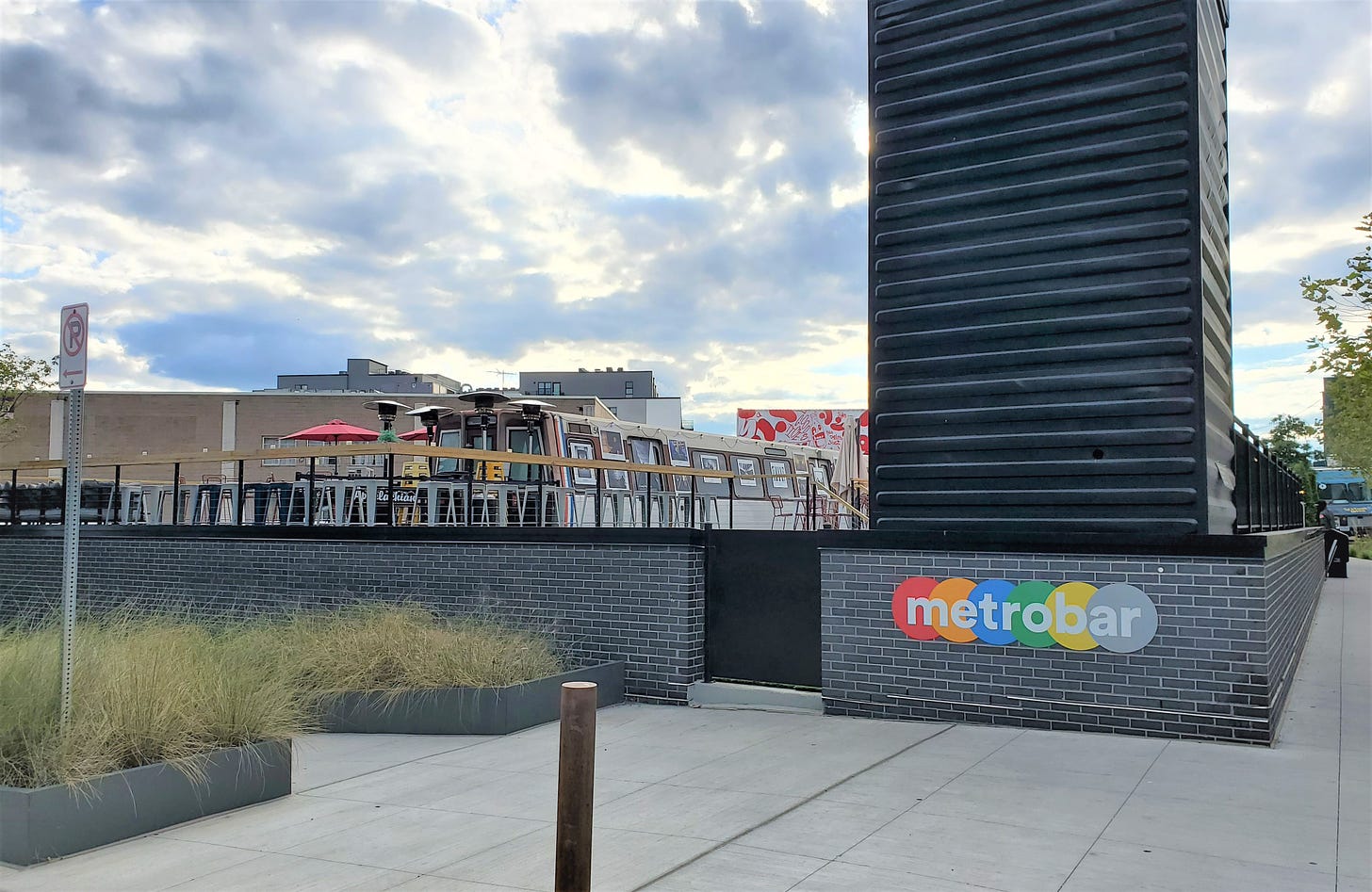
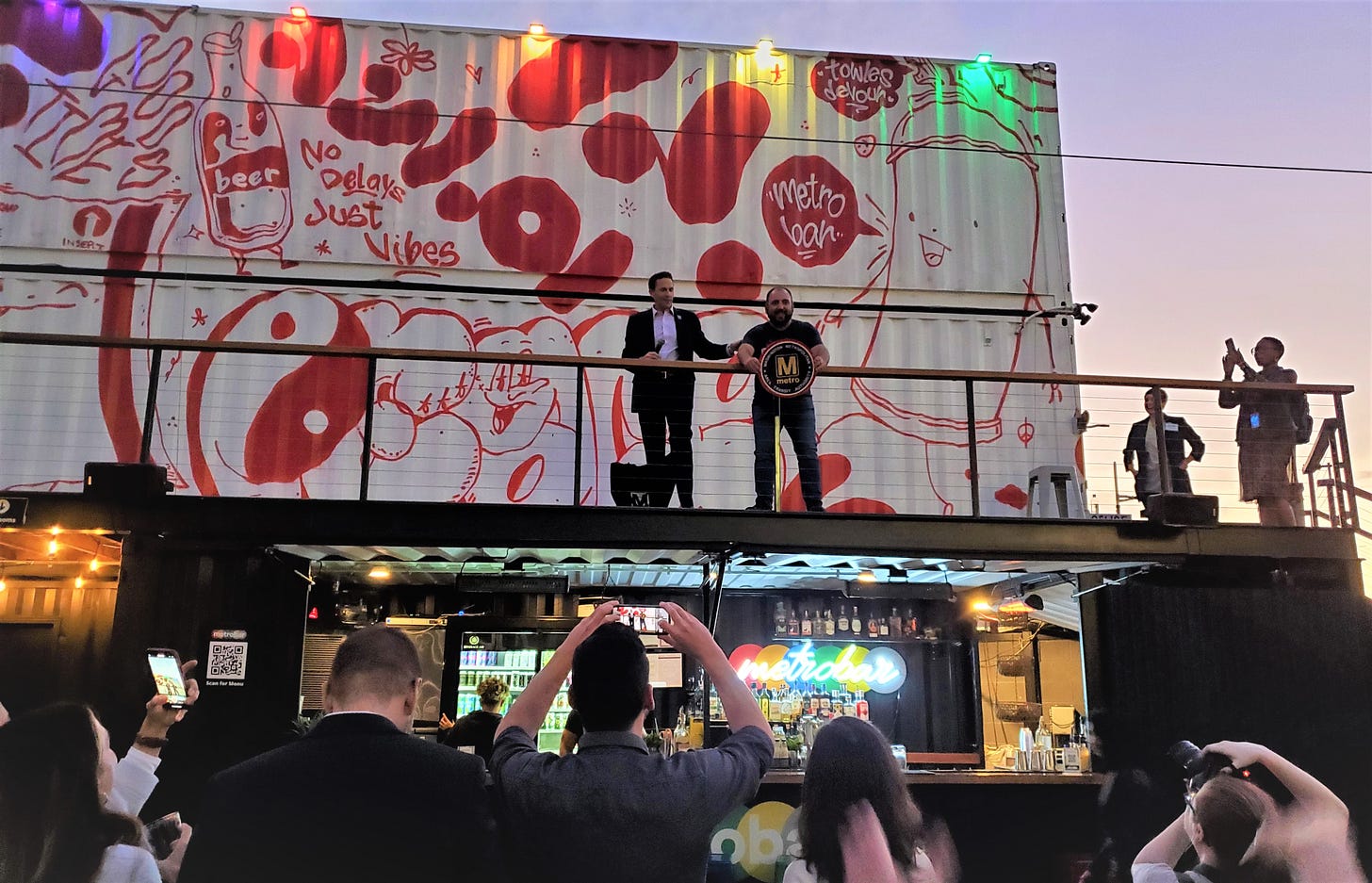

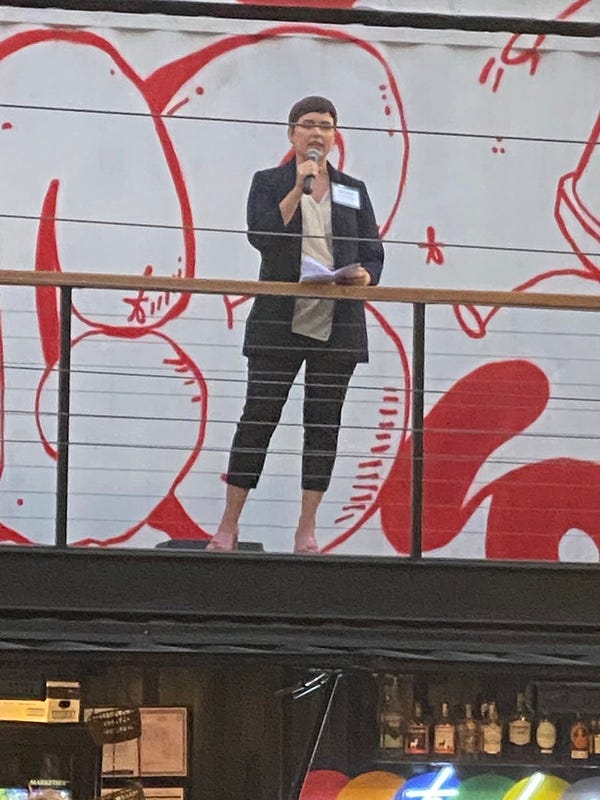
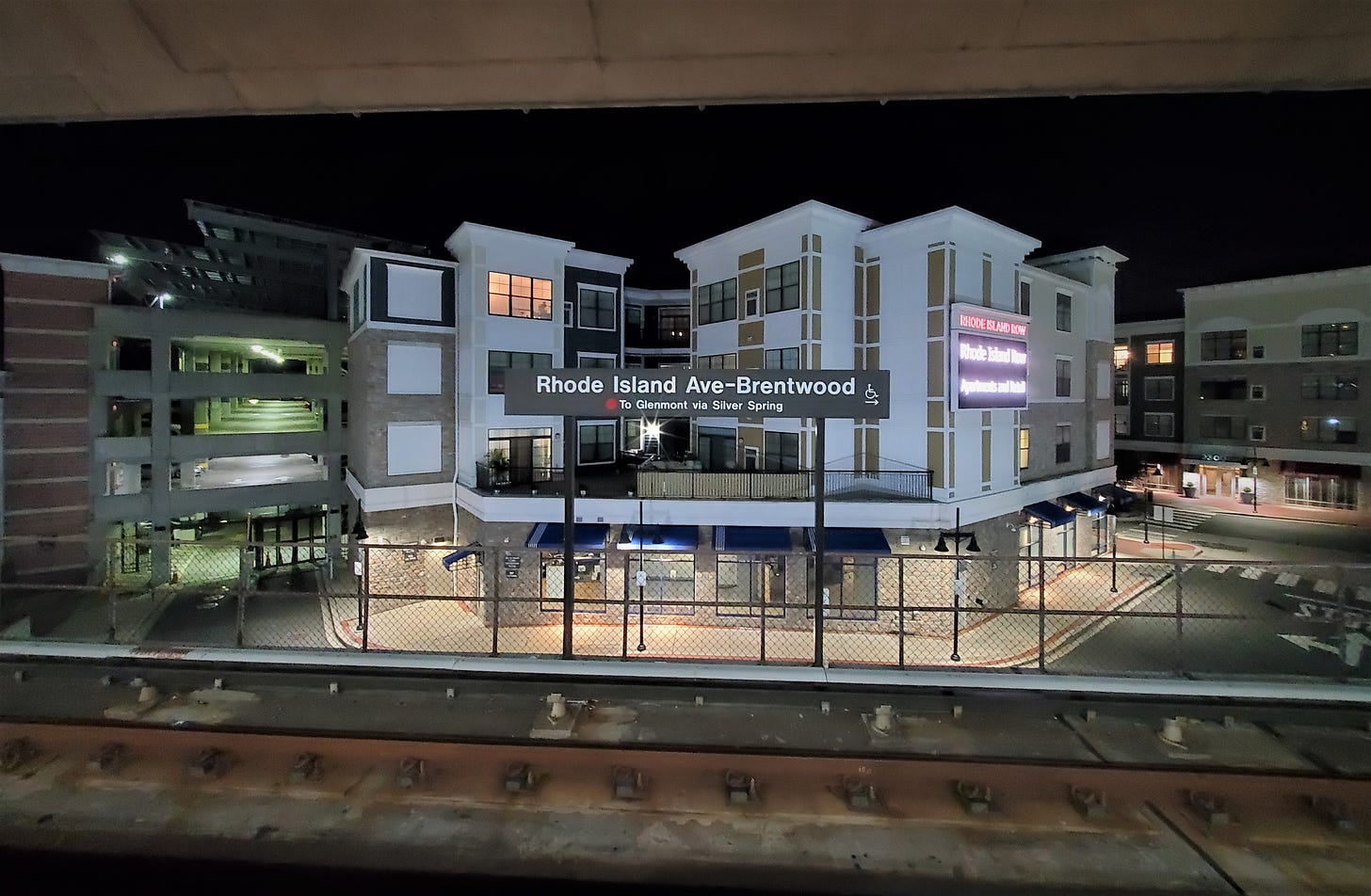
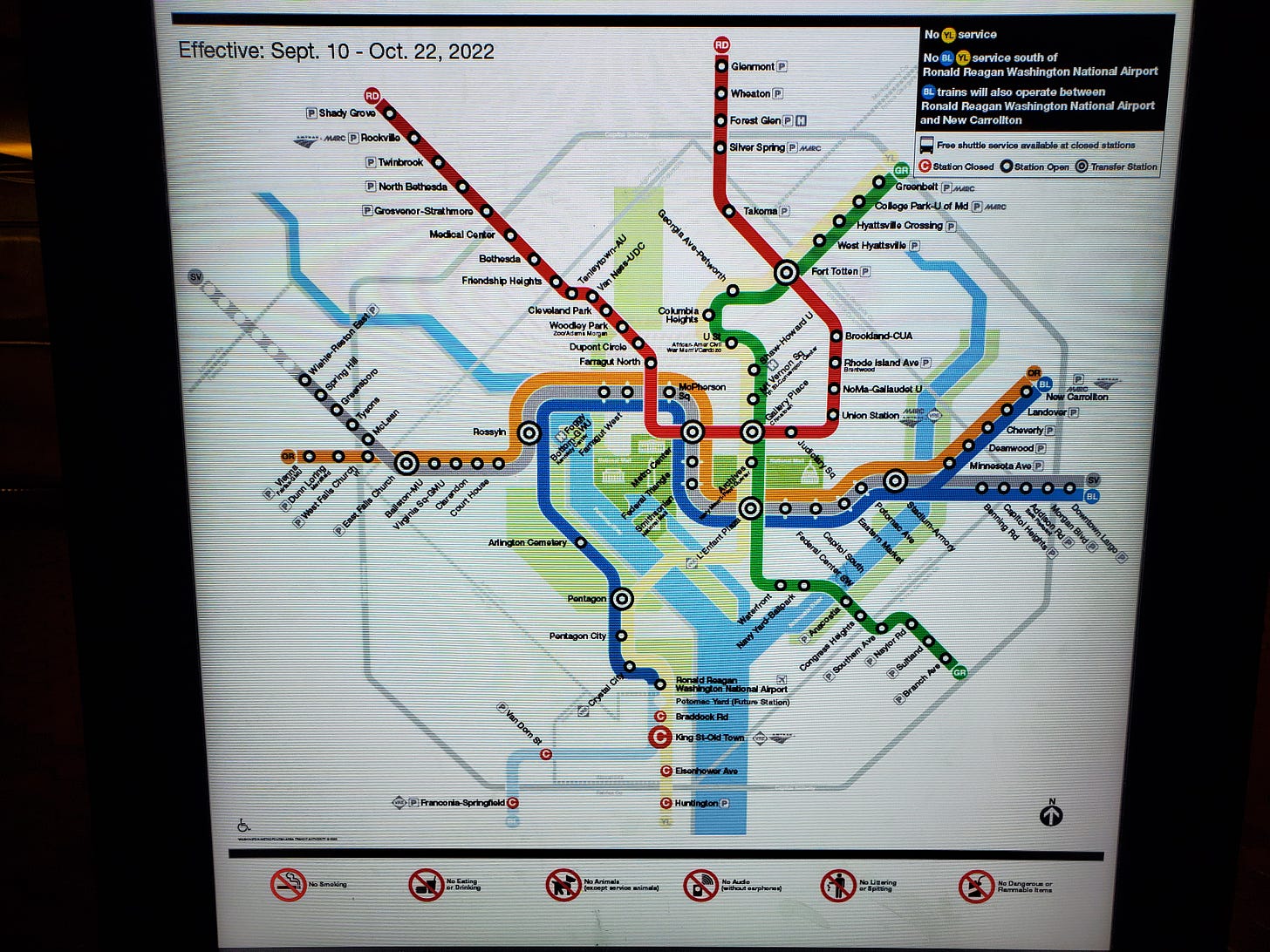
I used to love GGW until...
I commented on an article, pointing out that according to the source the writer was citing, he was off by an order of magnitude on a specific statistic, completely undercutting his argument, something like "digging this tunnel will only accommodate 500 trips a day", when the cited source said it was 5,000 trips. A day later I checked and found that my comment had been deleted. I followed up with the moderators to see what I had done wrong, and I was told that correcting the writer would "hurt his feelings", so he didn't want the correction to stand. It was a real eye-opener about how you really can't trust what's on the internet, that it isn't self-correcting, and man, some millennials really are snowflakes.